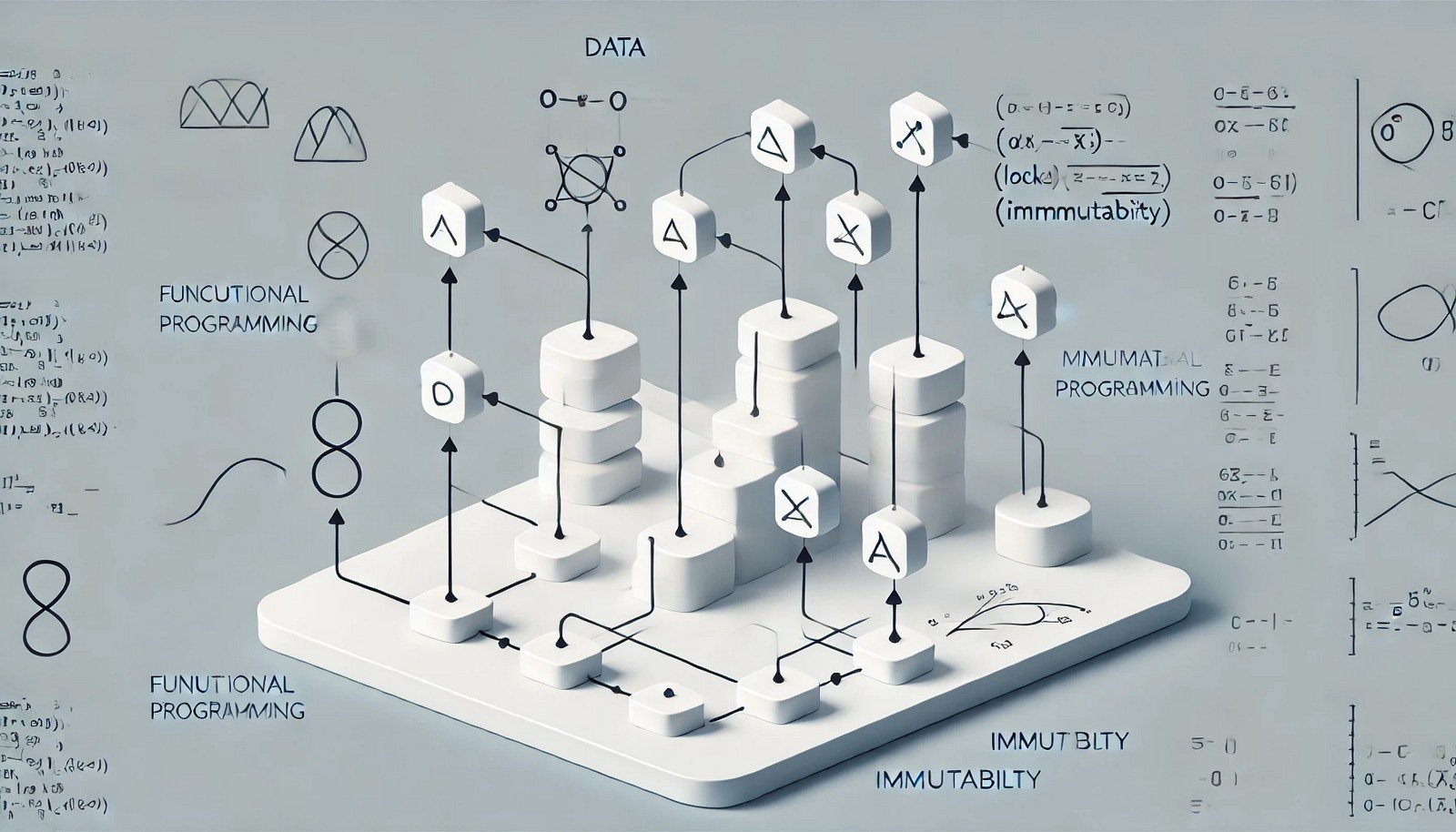Functional Programming

(Representational Image | Source: Dall-E)
Quick Navigation:
- Functional Programming Definition
- Functional Programming Explained Easy
- Functional Programming Origin
- Functional Programming Etymology
- Functional Programming Usage Trends
- Functional Programming Usage
- Functional Programming Examples in Context
- Functional Programming FAQ
- Functional Programming Related Words
Functional Programming Definition
Functional programming is a programming paradigm where computation is treated as the evaluation of mathematical functions. It avoids changing states and mutable data, emphasizing immutability and declarative code. Functional programming is prevalent in modern software development for its ability to create concise, testable, and parallelizable code. Key features include first-class functions, higher-order functions, and pure functions.
Functional Programming Explained Easy
Imagine you have a magic recipe book where each recipe always gives the same result, no matter who uses it or when. Functional programming is like that recipe book—it ensures every program behaves predictably, with no hidden changes.
Functional Programming Origin
The concept originates from lambda calculus, formalized by Alonzo Church in the 1930s. Functional programming has grown with advancements in programming languages such as Lisp, Haskell, and modern JavaScript.
Functional Programming Etymology
Derived from “function,” reflecting its foundation on mathematical functions and their properties.
Functional Programming Usage Trends
Functional programming has surged in popularity with the rise of multi-core processors and the need for scalable, efficient code. Languages like Scala, Kotlin, and JavaScript increasingly integrate functional techniques.
Functional Programming Usage
- Formal/Technical Tagging:
- Declarative Programming
- Software Engineering
- Parallelism - Typical Collocations:
- "pure functions"
- "immutable data"
- "higher-order functions"
- "functional programming principles"
Functional Programming Examples in Context
- JavaScript's
map()method applies a function to each item in an array, returning a new array without modifying the original. - Haskell's pure functions ensure predictable results in mathematical computations.
- Reactive programming in frameworks like React.js uses functional programming principles for state management.
Functional Programming FAQ
- What is functional programming?
Functional programming is a paradigm focused on immutability, declarative code, and mathematical function evaluation. - Why use functional programming?
It helps create predictable, maintainable, and parallelizable code. - What are pure functions?
Functions that return the same output for the same inputs and have no side effects. - Which languages support functional programming?
Haskell, Lisp, Scala, Kotlin, JavaScript, and Python support it to varying degrees. - What’s the difference between functional and procedural programming?
Functional programming focuses on immutability and functions, while procedural emphasizes sequences and state changes. - How does immutability benefit functional programming?
It prevents unexpected state changes, making code easier to debug and test. - Is functional programming suitable for large projects?
Yes, its predictability and scalability make it ideal for complex systems. - How does functional programming handle loops?
It replaces loops with recursion or methods likemapandreduce. - Can functional programming improve performance?
Yes, by enabling parallel execution and reducing bugs. - What is a higher-order function?
A function that takes another function as input or returns a function as output.
Functional Programming Related Words
- Categories/Topics:
- Declarative Programming
- Lambda Calculus
- Software Architecture
Did you know?
Netflix uses functional programming principles to manage its data pipeline, processing billions of daily events with frameworks like RxJava, ensuring reliability and scalability.
PicDictionary.com is an online dictionary in pictures. If you have questions or suggestions, please reach out to us on WhatsApp or Twitter.Authors | Arjun Vishnu | @ArjunAndVishnu

I am Vishnu. I like AI, Linux, Single Board Computers, and Cloud Computing. I create the web & video content, and I also write for popular websites.
My younger brother, Arjun handles image & video editing. Together, we run a YouTube Channel that's focused on reviewing gadgets and explaining technology.



Comments powered by CComment